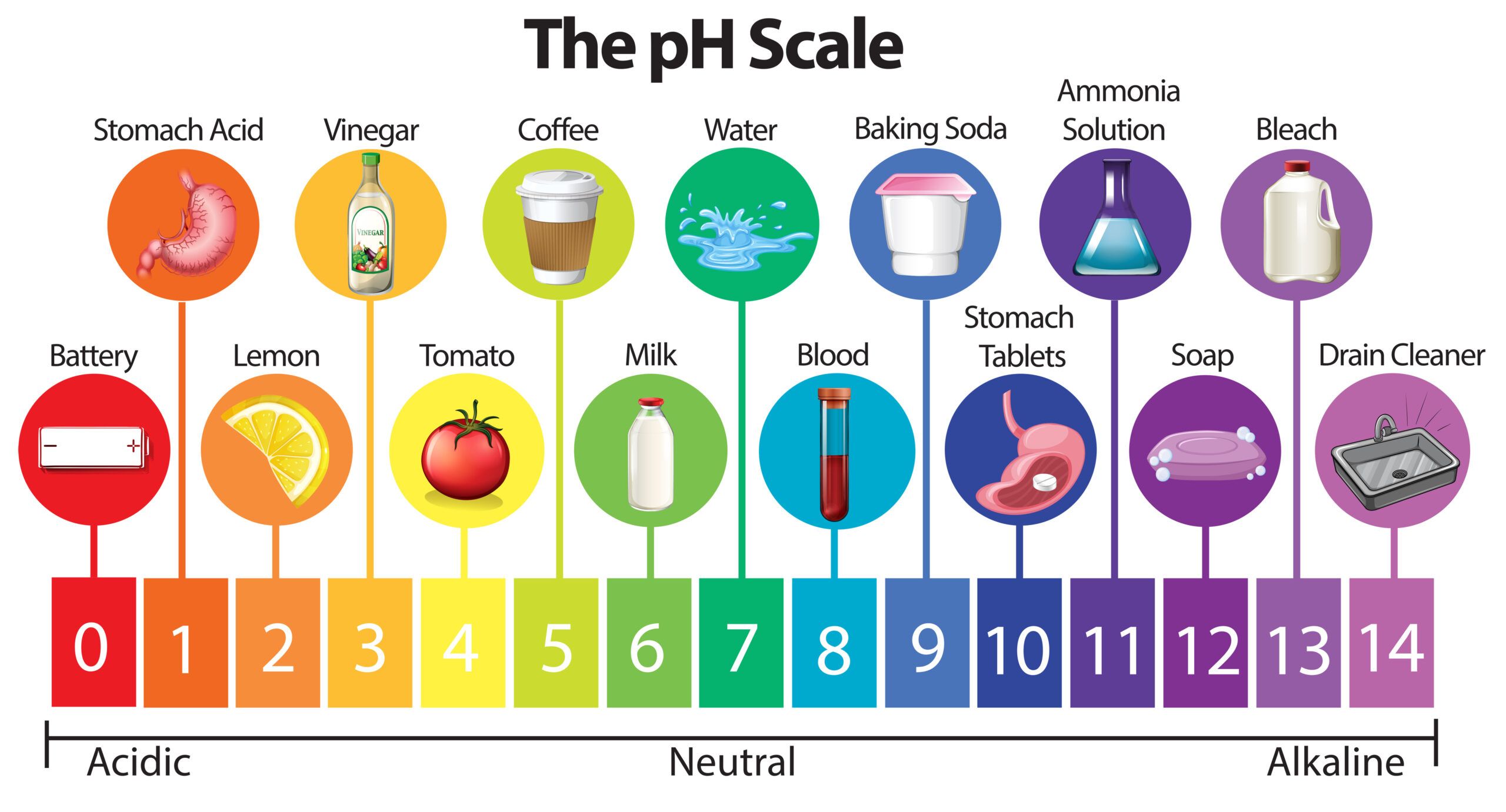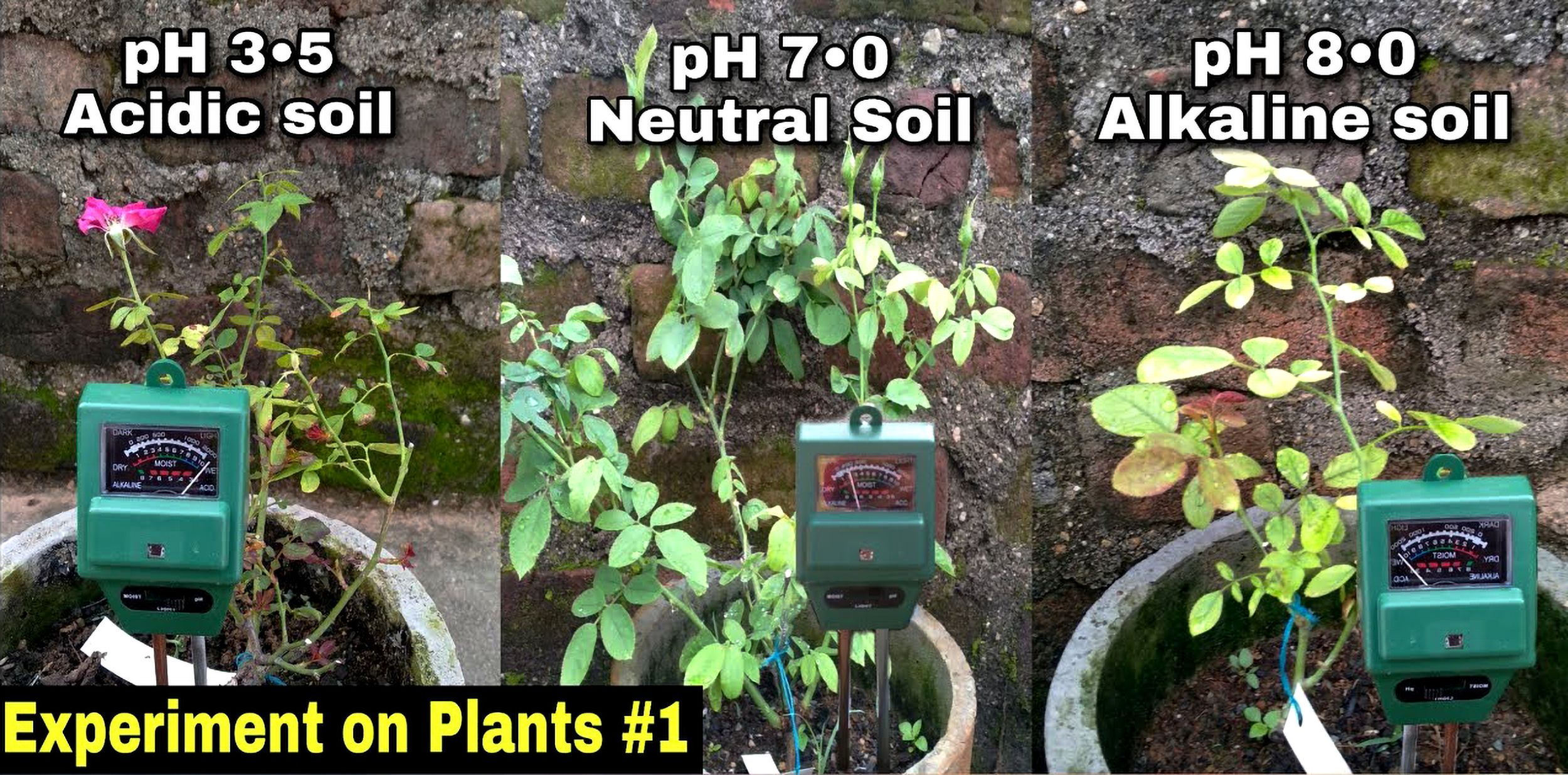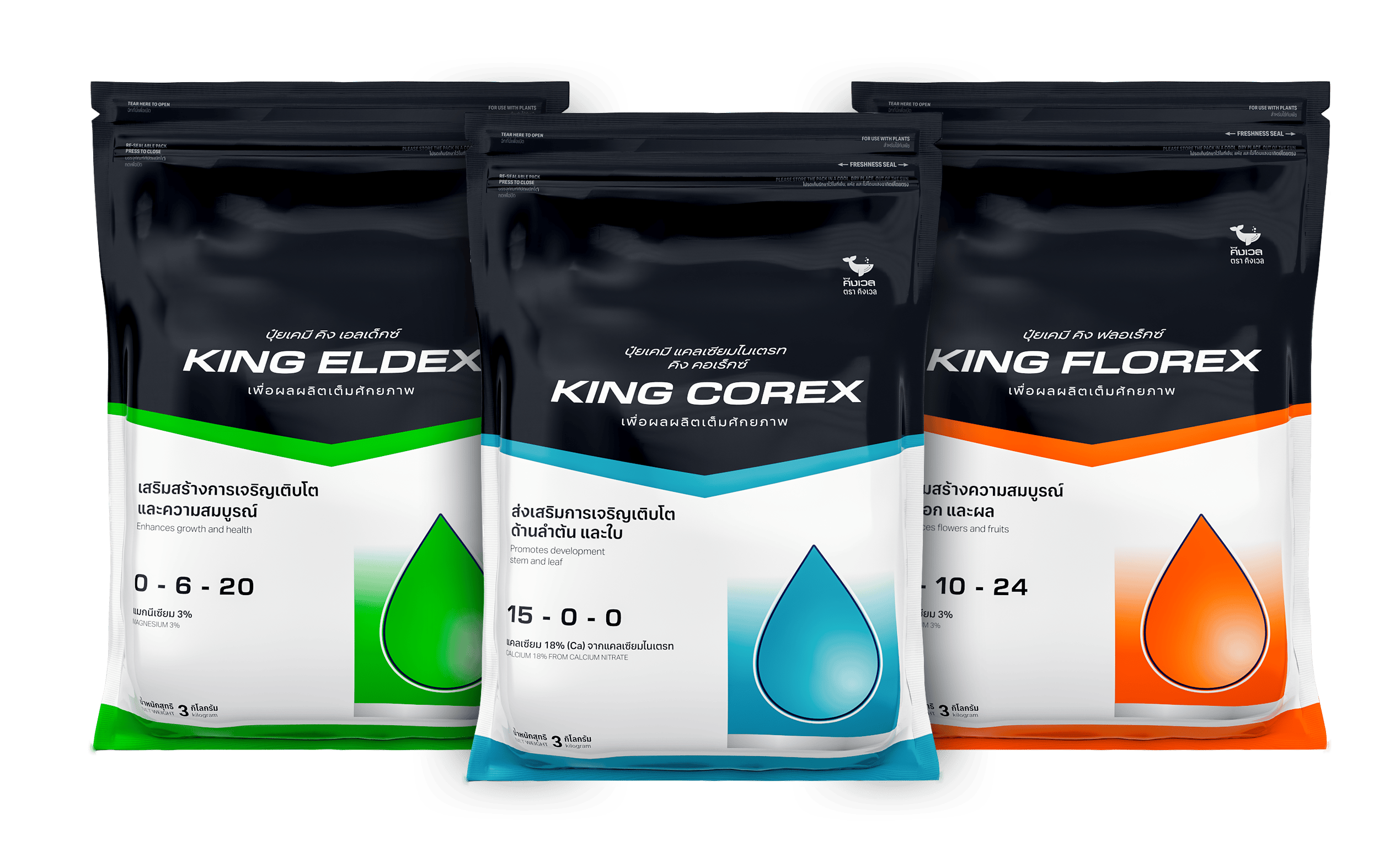
Supplementary innovation
Cultivation potential
Automatic pH balancing technology for stable plant growth, maximum nutrient access and reduced management complications, pH AutoPerfect® was developed to help farmers control the growing environment easily, precisely and stably with automatic pH balancing technology designed to suit all growing styles.
- Continuously control pH value, reduce fluctuations that affect plant growth.
- Increases nutrient absorption efficiency, allowing less fertilizer to be used while increasing yield.
- Safe for all plants, no rapid pH changes that may shock plants.
- Reduce management burden, no need to measure pH values repeatedly, reduce the chance of calculation errors.
- Suitable for all cultivation systems, including hydroponics, soil cultivation, greenhouses, and commercial farms.
Longest stable pH

pH AutoPerfect®, an innovative automatic pH balancer for modern agriculture
Modern agriculture is facing increasingly complex challenges, including climate change, ever-increasing demand for produce, and stringent quality standards from both domestic and international markets. Effective management of the cultivation environment has become an important factor that farmers cannot ignore.
One of the basic elements that directly affect plant growth is the pH of soil, planting material and water. Controlling the pH at the right level not only helps plants absorb nutrients efficiently, but also strengthens, increases yield and improves quality to meet the demands of the high-end market.
With a deep understanding of this issue, KINGWHALE has developed pH AutoPerfect® in the PROGRADE® fertilizer series, the latest innovation that combines automatic pH control technology to make pH management easy, precise and sustainable, supporting all types of cultivation systems and meeting the needs of modern agriculture that emphasizes efficiency, convenience and clearly different results.
What is the general pH value?
pH, or “Potential of Hydrogen,” is a measure of the acidity or alkalinity of a solution, and ranges from 0 to 14.
- pH = 7 is neutral, such as pure water.
- pH< 7 is an acid, such as vinegar.
- pH> 7 is alkaline, such as lime water.
In agriculture, pH affects the ability of plants to absorb nutrients. If it is out of the right range, no matter how much fertilizer is applied, the plant may not be able to absorb it to its full potential.

How to check pH value
Measurement of pH in water
Measuring pH in water, such as water in a fertilizer tank or water in a hydroponic system, is easy with basic tools such as:
- pH meter (digital pH meter): Immerse the probe into the water to be tested and wait until the reading stabilizes. The reading will be displayed on the screen.
- Litmus paper/test strips: Suitable for general use, changes color according to acidity-alkalinity, used for comparison with standard color charts.
Recommendation: The sensor head should be washed with distilled water or KCL solution after each use and calibrated periodically to ensure accurate measurement.

Measuring pH in soil or planting media
There are several methods for measuring pH in soil or potting media, depending on the resolution required. For example:
1. Use a soil test kit.
- Mix soil with water according to the proportions specified in the test kit.
- Shake to mix and add test solution. The color change will indicate the pH of the soil.
2. Use a soil pH meter.
- Insert the probe into moderately moist soil.
- The device will display the value on the screen.
Note: The soil should be fairly moist, not too dry or too wet, as this will affect the accuracy.

The importance of pH to plants
- The proper pH helps keep important nutrients such as nitrogen (N), phosphorus (P), potassium (K), calcium (Ca), magnesium (Mg) and iron (Fe) in a form that plants can easily absorb.
- Appropriate pH promotes the activity of microorganisms that play a role in decomposing organic matter and releasing nutrients to plants.
- When plants receive complete nutrients, they will have a strong root system, be more resistant to disease, and produce high yields.
The ideal pH for plant cultivation is generally between 5.5 and 6.5, which facilitates the dissolution and absorption of nutrients necessary for growth.

If the pH value deviates from the appropriate range, it may affect the dissolution and absorption of nutrients such as:
Too low a pH can cause some nutrients to be leached or become toxic to plants.
Too high pH can reduce the solubility of some nutrients, resulting in insufficient nutrient intake by plants.
Comparison table
| pH value | Impact on plants |
| Below 5.5 (strong acid) | Plants may receive toxic levels of aluminum and iron, causing impaired root growth. |
| 5.5 – 6.5 (appropriate) | Maximum nutrient absorption, strong plant growth |
| Higher than 7.5 (strongly alkaline) | Phosphorus, iron and zinc absorption is reduced, plants show nutrient deficiency symptoms. |
Therefore, maintaining pH balance is one of the key factors in effective farmland management.
The optimum pH value for each nutrient for absorption by the root system

summarize
- Most plants require a soil pH between 5.5 and 7.5 for optimal nutrient absorption.
- A pH below 5.5 (very acidic soil) will cause some nutrients such as calcium and magnesium to be lost with water.
- A pH above 7.5 (very alkaline soil) will cause iron, manganese, zinc and copper to precipitate in the soil, causing plant nutrient deficiency.
- The nutrients that are best absorbed in neutral to slightly alkaline soil conditions are molybdenum, calcium, and magnesium.
- Regular pH control improves fertilizer efficiency, reduces costs and sustainably increases yields.
| Nutrients | Approximate pH range for good absorption | Additional Notes |
| Nitrogen (N) | 5.5 – 7.5 | Nitrogen uptake is wide range, but if pH is below 5.5, nitrogen transformation in soil will be reduced. |
| Phosphorus (P) | 6.0 – 7.5 | Phosphorus is best absorbed in slightly to neutrally acidic soils. Alkaline soils cause phosphorus to be tightly bound and not dissolved. |
| Potassium (K) | 5.5 – 8.0 | Potassium can be absorbed well across a wide pH range, but if the pH is too low, it is easily leached. |
| Sulfur (S) | 5.5 – 9.0 | Sulfur is stable over a wide pH range, but absorption is highest in neutral to slightly alkaline soils. |
| Calcium (Ca) | 6.5 – 8.5 | Calcium is well absorbed in neutral to alkaline soils. If the pH is too low, calcium is leached and the plant becomes deficient. |
| Magnesium (Mg) | 6.5 – 8.5 | Similar to calcium, it requires non-acidic soil conditions for effective absorption. |
| Iron (Fe) | 4.5 – 6.5 | Iron is best absorbed in acidic soil. If the pH is too high, iron precipitates and plants become deficient in this element. |
| Manganese (Mn) | 5.0 – 6.5 | Manganese is well absorbed in acidic soil. If the soil is alkaline, manganese will not dissolve in water. |
| Boron (B) | 5.0 – 7.5 | Boron is well absorbed over a wide pH range but is sensitive to pH changes; absorption is reduced above 7.5. |
| Copper and zinc (Cu, Zn) | 5.0 – 7.0 | Copper and zinc are well absorbed in slightly acidic soils. If the pH is very high, they precipitate and are harmful to the absorption. |
| Molybdenum (Mo) | 6.5 – 9.5 | Molybdenum differs from other elements in that it is best absorbed in neutral to alkaline soils. |
pH AutoPerfect® Operation Guidelines
Use in soil or planting materials
- Dissolve KINGWHALE PROGRADE® fertilizer at the recommended ratio.
- Water the liquid fertilizer all over the soil until a small amount of water flows out of the bottom of the pot.
- Kingwell Fertilizer water will help adjust the pH in the soil to the level that plants can absorb nutrients the best.
Use in hydroponic systems
- Dissolve KINGWHALE PROGRADE fertilizer according to the recommended ratio.
- Kingwell fertilizer will automatically maintain the pH level of the water used for planting at the appropriate level. It helps control the pH value to be stable, not fluctuating, and does not need to be measured repeatedly every day.
In addition to significantly increasing productivity, using pH AutoPerfect® technology also has economic and environmental advantages.
- Reduce the cost of fertilizer and other pH adjusters
- Reduce the risk of slow plant growth or low yields.
- Support sustainable agriculture, reduce chemical leaching and contamination in natural water sources.
- Enhance the competitiveness of farmers in both domestic and international markets.
pH AutoPerfect® from KINGWHALE is a significant step in modern agricultural innovation that combines knowledge in chemistry, technology and a deep understanding of plant production systems to deliver intelligent tools that help farmers reduce complexity, increase production stability and drive towards truly sustainable agriculture.
If you are looking for a solution that will make your farming easier, safer and more productive, KINGWHALE pH AutoPerfect® is the answer you can trust.
Request for Farm Promotion Pricing
If you would like to receive details and request a special promotional price for your farm, please contact our team directly.
Error: Contact form not found.

